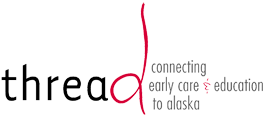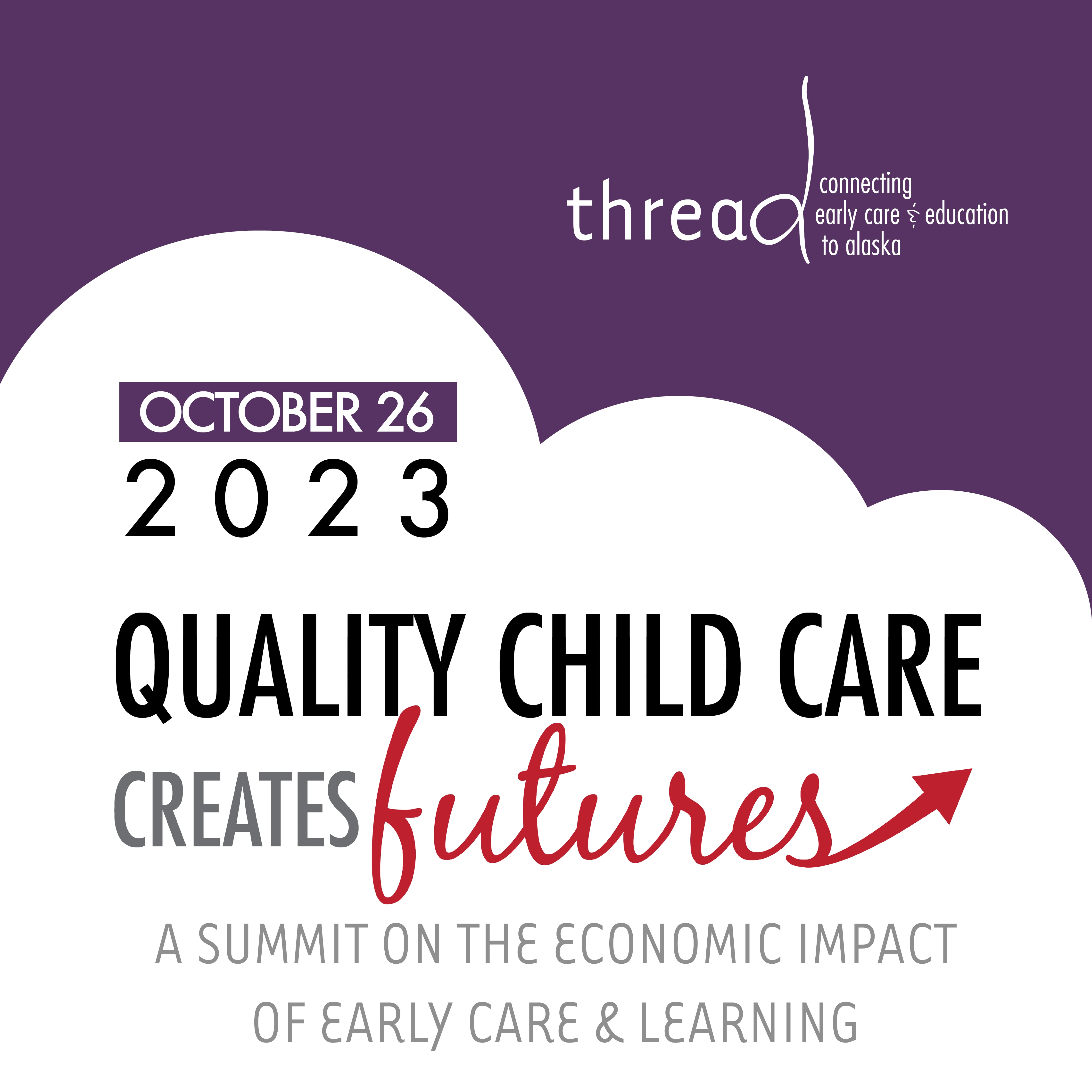Presented by thread
Entrepreneur Jasmin Smith knows how challenging life can be for parents who are juggling work and raising children in Alaska, where a child care shortage has become a crisis for many families and communities.
Smith is a single parent of twins. Balancing work and raising her children was already tough. Then she began working on a non-traditional schedule and found that local child care programs were closed during the times she needed help.
“I’ve never forgotten that experience,” Smith said.
Now the owner of two small businesses, Baby Vend and Umoja Coworking, Smith has eliminated that stress for herself and her staff by providing a more child friendly work space.
:quality(70)/cloudfront-us-east-1.images.arcpublishing.com/adn/Q6FOUDZAINCJBFMOBML2JVP75U.jpeg)
“I don’t want parents to have to choose between going to work or child care,” said Smith. “It made more sense to make my business space inclusive of kids and families.”
Smith is one of Alaska’s business leaders focused on creating family-friendly workplaces to support their teams. Alaska faces an unprecedented shortage of child care providers and experts say that local families, businesses and the overall health of Alaska’s economy is at risk.
With the help of thread, the statewide child care resource and referral organization, Smith and other community leaders are speaking up about how businesses can be part of the solution.
How to create a family friendly workplace: ‘That one resource made everybody happy’
Smith is a longtime community leader recognized as a voice for economic empowerment for black-owned Alaska businesses. She is also an active proponent for increased access to child care. She started Baby Vend, a vending machine company for baby supplies, after her own personal experiences while traveling.
“I’m always talking about child care and family, and how important it is to fuse the two,” Smith said.
In Alaska, child care is in crisis. A recent survey by the Alaska Chamber found that 77% of parents had recently missed work due to child care issues; absenteeism due to lack of child care is estimated to cost Alaska employers $111 million per year.
In Anchorage, licensed child care programs have dropped to under 200 providers, the city’s lowest number in more than 20 years, said thread CEO Stephanie Berglund. Some rural communities have been hit even harder, like Valdez and Gustavus, which have lost their only full-time child care programs. Federal ARPA and CRRSA funding sunset in September, which could create an even greater shortage.
The implications are profound and wide reaching.
“It really impacts families’ ability to live, earn, grow and stay in Alaska,” Berglund said. “People won’t be able to sustain a livelihood here.”
At Baby Vend, seven employees have all utilized the provided family friendly space, often during holidays and school breaks when kids would otherwise be at home, said Smith.
Parents supervise their own kids, and one parent even works alongside her child in the kids’ room. This innovative solution allows parents to come to work and be fully present, removing any worry about children being left at home. And, staff don’t need to use paid time off to cover child care.
:quality(70)/cloudfront-us-east-1.images.arcpublishing.com/adn/PZD4JYNKZ5EBNB46RCO2DR5SSY.jpg)
Child care is an additional expense that must be planned into the business, Smith said. But “for me, it was just cheaper. It made more sense. And that one resource made everybody happy.”
Smith also has family-friendly policies in place like flexible scheduling.
By offering this flexibility, “my employees aren’t as stressed. They know that they can trust me,” said Smith.
On Oct. 26, thread will host a 5th Summit on the Economic Impact of Early Care & Learning. The Quality Child Care Creates Futures Summit will bring together community leaders looking to help forge solutions for Alaska’s future. The summit will feature local and national speakers.
“This is an invitation to business leaders, policymakers and child care advocates to join us at the summit,” Berglund said. “Learn about the latest economic impact data, bright spots in child care investments and hear how businesses can be part of the movement.”
The organization seeks to improve access to affordable, high-quality child care through a wide range of services for families, child care professionals, businesses and communities. Its extensive services include an online search tool, child development and parenting information and free child care referrals.
Referral specialists can “help take the guesswork out of how to start a search,” said Berglund.
For businesses looking to be more family-friendly, thread offers an HR workplace checklist and business consultations.
Child care professionals can take advantage of professional development, training and support to improve the quality of child care, even down to their curriculum or daily schedule.
For community leaders, “thread’s training is invaluable,” said Smith.
Community leaders look to the future of child care
Smith is just one of many business owners working to increase access to child care, Berglund said. Many of Alaska’s hospitals have been providing child care on-site, including Fairbanks Memorial Hospital, PeaceHealth Ketchikan Medical Center, Providence Medical Center and Alaska Regional Hospital.
The Alaska Chamber’s survey found that both large and small businesses were unable to find child care for their employees, said Alaska Chamber CEO Kati Capozzi. Many are taking action on their own.
“This is an issue that’s impacting everybody,” said Capozzi.
The Alaska Chamber voted to adopt a policy position in support of access to affordable child care. This position was sponsored by thread, an Alaska Chamber member, and had a great deal of support from others.
“Businesses are willing and ready to be part of the solution,” said Capozzi.
Both Capozzi and Berglund are a part of State of Alaska’s recently convened task force, which has met twice monthly since July. The task force will make recommendations to the governor and legislature at the end of the year.
Capozzi said options could include public-private partnerships, tax incentives or new partnerships. The business community is “looking at what’s causing the shortage and what can be done quickly to start offering relief,” she said.
Berglund hopes to see increased funding at the state level. “Alaska is one of only a handful of states not making increased and sustained investments in early childhood,” she said. “Other states are seeing great results and strong impact.”
Smith also stressed the need for quick action. “We already know what the problems are, and the solutions don’t have to be long-term, complex, hard, or expensive,” she said.
For Smith, providing flexibility and creating a family friendly work place just makes sense.
“We are in a shift with how our workforce views benefits and what they need,” said Smith. “There are innovative ways we can foster and support families who are having child care issues at the workplace.”
Learn more at thread’s event — Quality Child Care Creates Futures: the 5th Summit on the Economic Impact of Early Care & Learning on Oct. 26, 2023.
Thread is Alaska’s Child Care Resource & Referral organization, working to advance the quality of early education and child development by empowering parents, educating child care professionals, and collaborating with our communities.
On October 26th you can be part of the only conversation of its kind in Alaska at threads 5th Summit on the Economic Impact of Early Care & Learning: Quality Child Care Creates Futures. thread’s Summit brings together business and community leaders, policymakers, and child care advocates for a conversation around the essential role child care plays in Alaska’s economy.
The event will highlight the latest data on child care’s impact on Alaska’s economy and showcase inspiring solutions for what’s needed next. Join the conversation and get your tickets today at threadalaska.org/summit.
This article was produced by the sponsored content department of Anchorage Daily News in collaboration with thread. The ADN newsroom was not involved in its production.
:quality(70)/cloudfront-us-east-1.images.arcpublishing.com/adn/UQXIIKRQO5BQVHGDKB26QJDUJQ.jpg)

